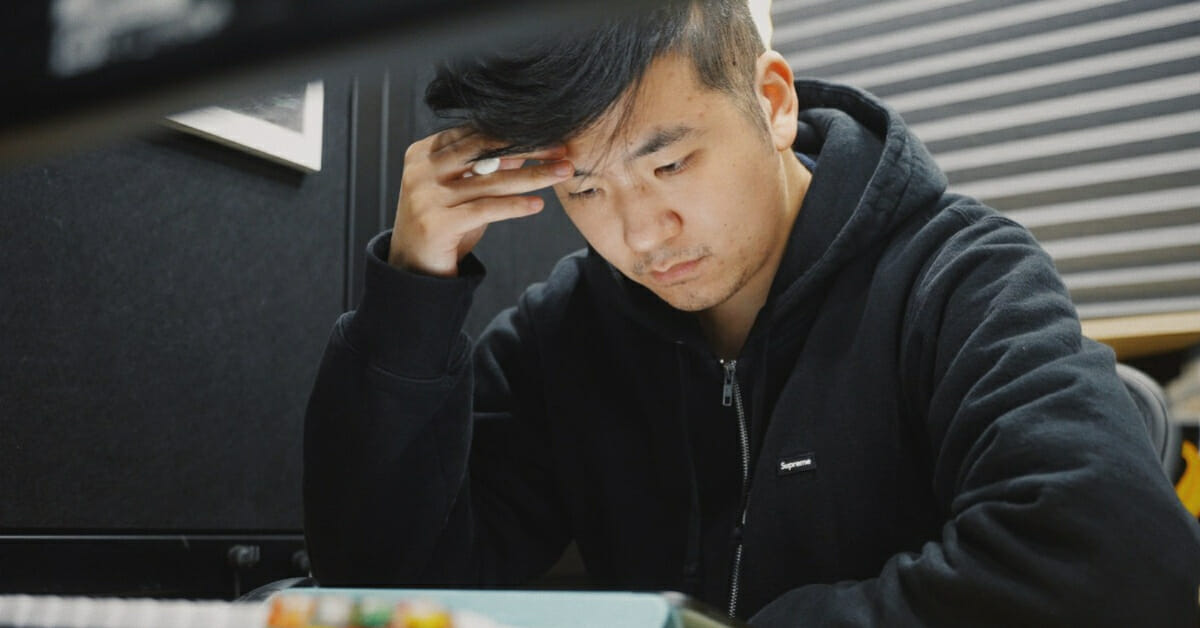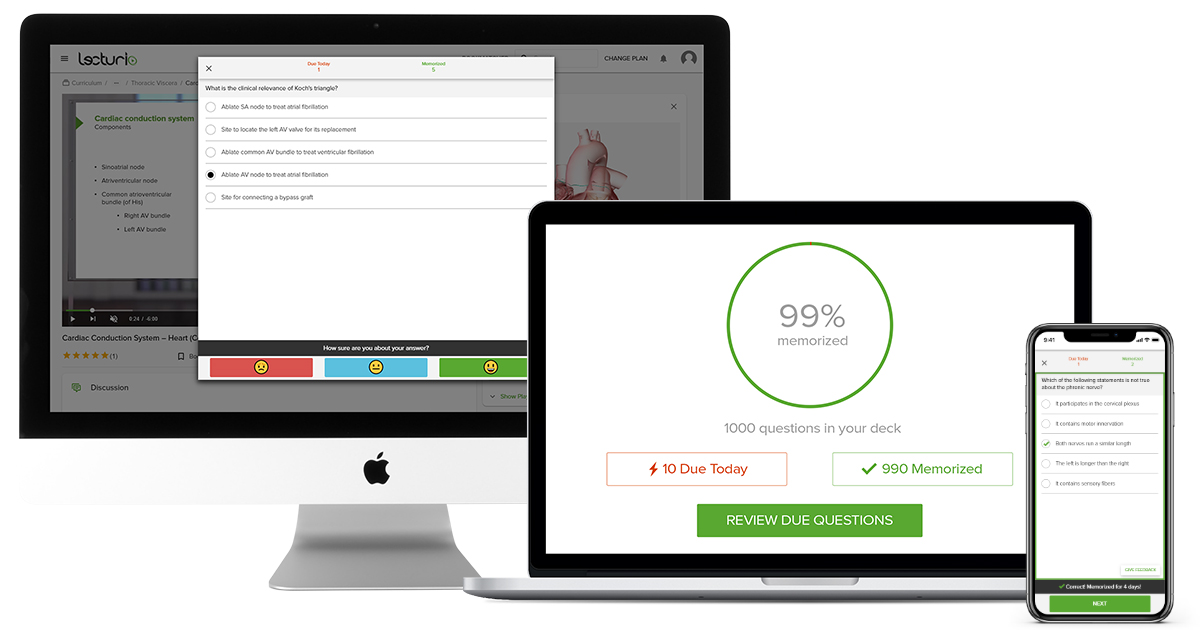What many students lack (and what they actually need to master most) is time management skills.
It’s a skill that requires a lot of practice and discipline, but it’s not impossible to learn. In medical school, you only have a few years to master pretty much anything that can go wrong in the human body. That’s piles of books, hours of lectures, and pools of blood, sweat, and tears spent studying. It’s no wonder that medical students are more stressed than the general population.
If that isn’t enough to convince you to manage your time wisely, let me elaborate:
Why Do Time Management?
I used to think that surviving day-to-day was enough. And in some ways, it is. But when it comes to studying for your upcoming exam or class, you need to think ahead. There’s a lot of material to get through and not enough time to finish it. While your first instinct is to cram everything in the short amount of time you have, the better way to go about this is to space it out and manage your time wisely. Why?
Proper time management can both increase your productivity and decrease your stress. While some people can work just fine without organizing their stuff, having some structure helps reduce anxiety due to uncertainty so that you can focus better. You’ll also find that once you identify what you can and can’t do when you study, you can spend more time doing the things you enjoy outside of medicine.
How Many Hours Should I Study per Day?
Honestly, it really depends on the style you use. It varies per student, but there are studies that say that most students would study 3-4 hours per day. For some, that would be enough, others… not so much. Another study showed that a majority of high-ranking students study 6-8 hours per day, but there was no correlation with success from studying more than 8 hours. In other words, anything longer than 8 hours isn’t effective.
These hours also don’t take into account break times and how short a person’s attention span can be. (Some studies say it’s 15 mins, but other studies disagree.) You also need to take into account that there will be some subjects that are easier for you than others. This means that some will take more time and effort to understand than others will.
How Long Does It Take To Memorize Something?
Memory is complicated. There are multiple types of memory and different ways of retaining it for easy recall during your next exam. But sometimes the thing you recall isn’t even correct. That’s because when we try to incorporate the things we learn into memory, it’s affected by multiple factors that determine whether it can be easily and accurately recalled or not.
This all depends on how you learn. Some people claim to have photographic memory and remember things like faces in less than 30 seconds. Others claim that they make mind palaces, which can be effective but takes more than a few minutes. Many medical students use mnemonics for memorization, which doesn’t always work. In short, there’s no clear answer because it depends on what works best for you. Usually, the answer is a mix of multiple techniques.
How Long Should A Study Break Be?
Studying can be mentally taxing and at some point, you’re going to feel tired. To avoid getting too tired, taking breaks becomes essential to the study process. But I’m sure many of us have experienced taking 10-minute breaks that eventually become 3-hour breaks. So, is there a specific length for breaks that results in the most productivity?
Some sources say that taking 15–20 minute breaks after almost an hour of work is enough to feel refreshed without throwing you off your momentum. Others use the classic Pomodoro method and take a set amount of study time to break time, usually a ratio of 25:5 minutes. Others claim that they don’t even take breaks at all when they believe they have strong enough willpower. But this last one isn’t recommended because the fatigue can have consequences.

Can You Study Too Much?
The short answer is “yes.” The long answer is that studying too much can result in mental fatigue.
This causes drowsiness, difficulty concentrating, and decreased work efficiency– basically, all the things you don’t want while you’re studying. That’s how you know that you’ve studied too much.
Instead, you should space your study sessions instead of cramming a lot of information in a short amount of time. It can feel like taking breaks is a waste of time when you could be studying, but honestly it’s more of a waste of time to push yourself when you physically and mentally can’t focus. In fact, you’ll find that taking the time to care for yourself, including getting enough sleep, can improve your grades overall.
Making Your Own Study Schedule
What makes a good study schedule? Balance. A good study schedule is flexible yet adheres to a specific plan, is ambitious yet realistic, and uses multiple techniques that are tailored to your own style. Here are a few steps to help you formulate your own schedule.
Step 1: Figure out your study style
The first thing you need to figure out is your study style. Do you think of yourself as a visual learner? Do you study better in the morning or evening? What do you do in between studying? Do you use flashcards or make concept maps to learn? There are multiple ways to study and many ways to do them. Some take more time or energy than others.
However, once you identify which styles work best for you, you’ll find that things flow smoother. When things flow smoother, the more times you do it, the faster you get, and the more free time you have later. I used to think that it would be faster to use flashcards others made than my own, because I wouldn’t need to take the time to make my own. However, I found that making my own flashcards helped me analyze my learning better and made things easier to recall because they’re based on my own understanding of the topic.
Part of this step is also knowing what makes you feel rewarded but driven after a study session. You’ll want your break time to be rewarding by doing and having things you want, but not so much that you’ll want to stay in break-mode rather than studying. Which brings me to the next step…
Step 2: Identify your barriers to studying
Know what distracts you. Is it harder studying in crowded or silent places? Do you study better by listening to music? Does having other people studying around you help? Do you find yourself looking at your phone or computer so often that it eats up your study time?
All of these are acceptable in moderation, but when you’re trying to follow your own schedule, you need to learn to regulate these things. You can try using phone apps that lock you from your browsing for a time. You can try separating yourself from a place where you usually relax and study somewhere like a library or cafe. Everyone has something that stops them from working at their best, so you have to think about what’s stopping you from focusing.
Step 3: Create a schedule
After identifying your strengths and weaknesses in the last 2 steps, you need to figure out how to distribute your 24 hours in a day into something productive. How much do you study per day? How long of a break works for you? Do you need to allot time to travel anywhere or to do some errands?
All these can sound meticulous– and it is. When you have too little time, every minute counts. So you need to make a schedule that fits how many hours you need to study with an allowance for other things in your life. I personally like to put 2-3 hours of free time in case something happens in the day. If you find it hard to make a schedule for yourself or you don’t know where to start, there are phone apps that can guide you.
Step 4: Make it a habit
It’s not enough to make your own schedule– you have to abide by it. It will be easier to start studying when it’s part of your daily routine. And, when you do something regularly, you learn to do it faster.
I used to spend around 3 hours making my own flashcards, but after a couple weeks, I got so used to it that it shortened to 1.5 hours. That’s 1.5 hours that I can spend doing something else like exercising or watching a movie. Sometimes, Iuse the extra time to go back to study concepts that I don’t understand. Make it a habit to follow regular schedules and activities. Also, there are apps to track your activities, too!
Step 5: Know when to stop and rest
As I said earlier, resting and sleeping can make you less stressed and therefore more productive in the long run. Apart from that, there are some days when I want to end early for the night– even if I haven’t finished what I wanted to study. That’s totally okay! Knowing your limits can help you know when to conserve your energy so that you can study better later on rather than forcing yourself and not learning anything in the process.
Remember that rest is still part of the studying process. It’s not something that takes you away from productivity. You’re more than just a medical student, and you shouldn’t force yourself to run like a machine. Your health, physical or mental, should always come first.
Step 6: Trust the process
It can seem like you’re not making progress at first, but try to stick to the schedule you made for a week or two. Your grades won’t change overnight and habits aren’t made by practicing them for a day. You need to trust that you know yourself well enough to make an effective schedule, and understand that you can’t improve your study habits or grades overnight.
If after some reasonable amount of time, you really think it’s not working for you, you can switch to other techniques or adjust your schedule. Go back to Step 1, if you must. Afterall, most of figuring yourself out is trial and error. Mix and match different techniques, and you’ll eventually find one that works for you. So don’t worry. You’ll get your groove eventually. Just trust yourself and trust the process.





